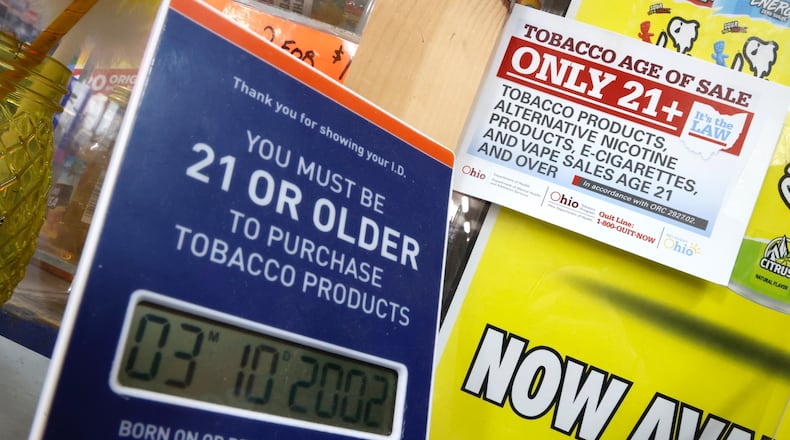The Tobacco 21 law covers all tobacco products and alternative nicotine products including e-cigarettes and vaping products. Clark County adopted measures to supplement the effort locally 18 months ago by enacting a local Tobacco Retailer Licensing and Sales ordinance.
Patterson provided city commissioners with the results of a recent “sting” locally.
The Health District worked with underage purchasers who attempted to buy tobacco products from 84 Clark County area retail outlets in violation of the local ordinance. They were successful in one out of every three attempts, a failure rate that caused commissioners concern.
State and local officials see efforts to prevent and control tobacco experimentation among youth as key to smoking prevention and the prevention of early death.
Based on the recent findings of the Health District review, Commissioner David Estrop expressed disappointment, and Patterson indicated additional tweaks to the legislation may need to be made to strengthen the effort.
Commissioner Krystal Phillips, who is an educator with Springfield City Schools, indicated she had been approached by several parents with children in middle school who were upset when they discovered the ease with which their children could access tobacco vape products.
“I’ve had parents say they’ve confronted owners about sales to youngsters,” Phillips said. “I’m glad to see some of the retail outlets they have mentioned are included in your list of offenders and will be cited for these violations.”
Retailers selling tobacco in Clark County are required to have a license for retail tobacco and paraphernalia sales, which is issued by the Clark County Combined Health District annually. The fee for the license is $150 for each location where tobacco related sales are available. There is also a $75 application fee for the license. Patterson told commissioners the fee essentially covers the cost of implementation of the measure.
The consequences for violating the ordinance include a $500 fine for the first violation, which increases if there are additional offenses over the next two years to $1,000 per violation.
Retailers are required to post signs stating that the law prohibits the sale of tobacco related products to anyone under age 21. Not doing so could result in a denial, suspension or revocation of the license to sell.
State officials are not “doing much enforcement” according to Patterson, so the local measure is an important step in making an impact in smoking prevention.
Assistant Mayor Rob Rue expressed frustration that the marketing of vape related products specifically targets youth, and asked how the local review of retail violations compared to other communities.
“The outcome is similar to other communities in Ohio,” Patterson said.
The goal of the state and local legislation is to prevent youth from experimenting with tobacco products because most smokers initially engage in tobacco use while still adolescents, and sometimes even younger.
Patterson indicated evidence shows that “for every year young people hold off in the use of tobacco, they are less likely to become users for a lifetime.”
About the Author
